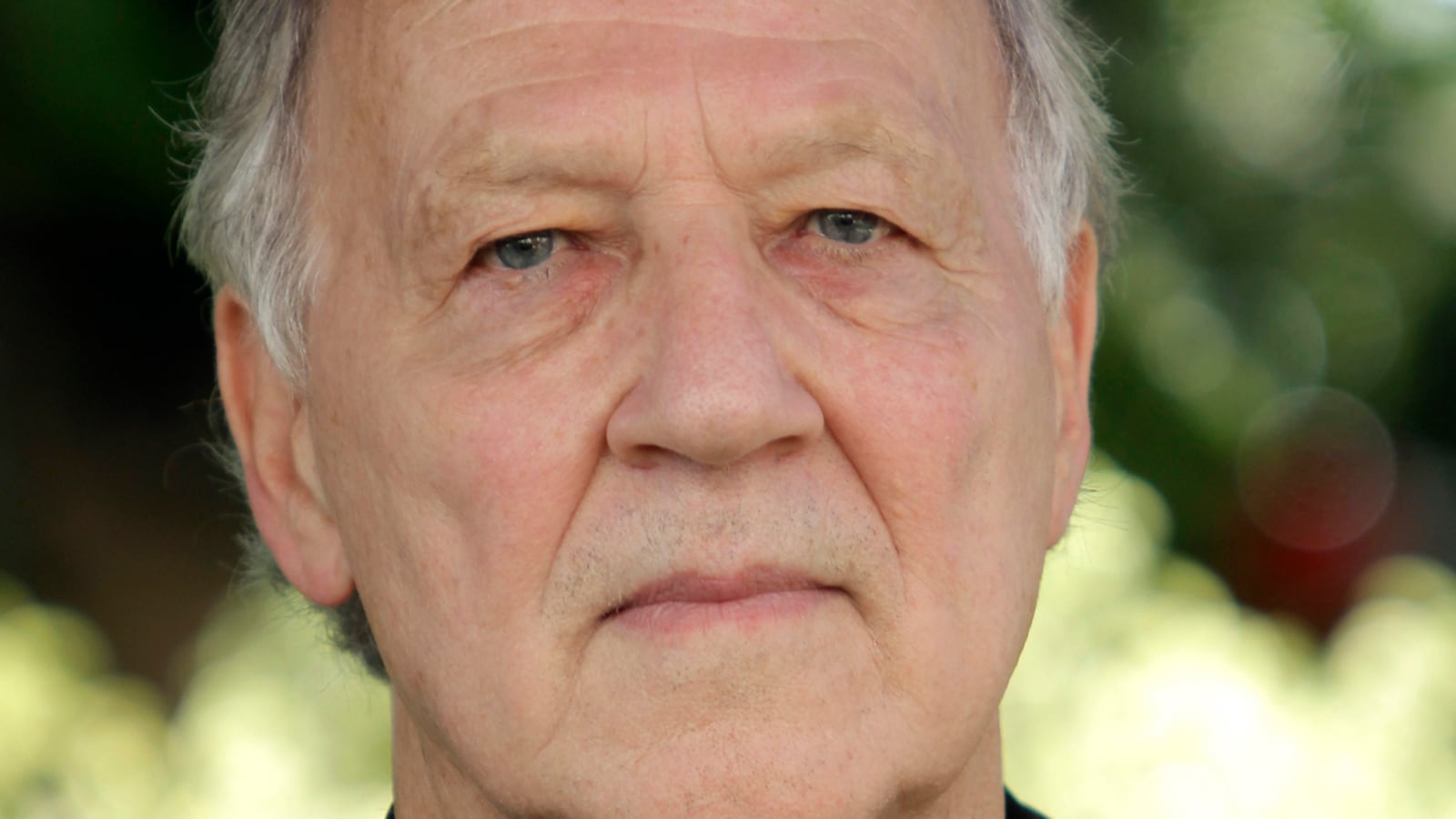“I think human beings should not be executed, as simple as that.” The pronouncement comes in a familiar German accent. Werner Herzog is speaking to Michael Joseph Perry. He is a convicted killer, but his boyishness is disarming, almost exculpatory. Perry discusses his upcoming execution with an aw-shucks smile; his hairline is tasseled with greasy bangs.
Herzog’s new documentary, Into the Abyss, is not, however, the anti-death penalty polemic that his personal opposition to capital punishment might lead you to expect. “You see, the last thing that should ever happen is that me, a German, is trying to tell the American people what to do,” Herzog tells The Daily Beast. “It’s not so much about capital punishment. It’s more about what does it mean to know how you will die and when you will die? We do not know, but they know.”
Perry knows. He is executed just eight days after Herzog interviews him. In 2001, Perry, then 19, and an accomplice, Jason Burkett, murdered Sandra Stotler as she baked cookies in her Texas home. They wanted her son Adam’s red Camaro. After dumping her body, they returned to the neighborhood. They murdered Adam Stotler and his friend James Richardson, too. Then they took the car.

Herzog reconstructs this crime in detail, using police video that shows the blood streaks in the Stotler home. But his focus isn’t lurid. If anything, it’s anthropological. Into the Abyss depicts a way of life as brutal as the names of towns like Cut and Shoot, Texas, imply. Tragedy didn’t arrive into the Stotler and Richardson families’ with Michael Perry and Jason Burkett. It had been there all along. Sandra’s daughter, Lisa Stotler-Balloun, rattles off a list of deceased relatives that could fill a graveyard; and before Perry and Burkett killed his brother, Charles Richardson lost his sister when she tried to run across a freeway. The Burkett family, meanwhile, is so criminal that Jason was once able to eat Thanksgiving dinner in prison with his father, Delbert, and brother.
“It’s like a true American Gothic,” Herzog says. He has taken an interest in outré American characters, not just in Into the Abyss but other recent films like Grizzly Man and The Bad Lieutenant. In our interview, Herzog admits to finding a “quote-unquote charm” in Into the Abyss’s subjects—an attitude that some might see as patronizing. The film sometimes veers in that direction, like Herzog’s fascination with an auto mechanic who did not learn to read until adulthood. (“Wonderful, yes?” Herzog asks, to which the mechanic replies, “Yeah, it’s awesome.”)
But this disconnect is rare, as most of Herzog’s interviews are as candid and moving as anything he has put on film. Charles Richardson, who has tears tattooed on his cheekbone, sheds actual tears when remembering his brother; his voice cracks as he says, “He was my best friend,” and he repeats the line in a deeper, more masculine register. From a prison cell, Delbert takes responsibility for Jason’s crime. “He had trash for a father,” he says. But he takes pride in his greatest paternal accomplishment: convincing the jury at Jason’s trial to spare his life.
Herzog, meanwhile, withholds the elaborate metaphors that have marked (and marred, to some minds) his recent documentaries—the glacier that he suggests as “a metaphor for his soul” in Grizzly Man, or the albino crocodiles in the Cave of Forgotten Dreams epilogue that left many viewers scratching their heads.
“It wouldn’t feel right if I made a big fuss about my commentaries or my presence in the film,” Herzog explains. “You see, when I’m in a film with my commentary like Grizzly Man, that’s because I have an ongoing argument about the Disneyization of wild nature with a man who was killed and eaten by a bear. Here, this doesn’t need to be commented. The film dictates my presence or absence.”
In Into the Abyss, Herzog never appears onscreen, except as a reflective glimmer in the windows through which he speaks to prisoners. “When you are sitting opposite a man who is going to die eight days later,” he says in that familiar accent, “you are completely insignificant.”






